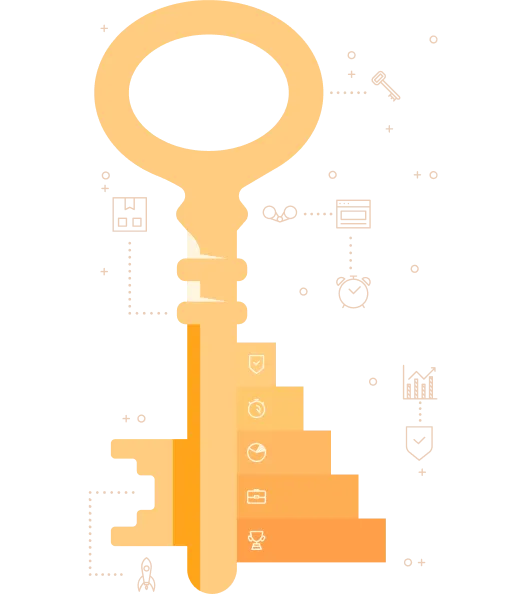Key Benefits Students
April 10, 2024 2024-04-10 19:31Key Benefits Students
Empowering Graduate and Postgraduate Students
Benefits of Work-Integrated Learning Programs
At Tejas Eduskills, our commitment extends beyond traditional education paradigms. We believe in offering graduate and postgraduate students transformative learning experiences that transcend the boundaries of the classroom. Through our work-integrated learning programs, students can expect to reap a multitude of benefits, each contributing to their holistic development and professional success.


Work-integrated learning programs
We offer a wealth of benefits for graduate and postgraduate students
Ranging from practical experience and industry exposure to enhanced employability and long-term career success. By participating in such programs, students can gain valuable skills, experiences, and insights that prepare them for the challenges and opportunities of the modern workforce.
Key Benefits of Students!

- 70% practical ( Hands on real world) + 30% Theory
- Regular Degree from UGC recognized University
- Degree with 3 years of Experience
- Learning Skills through On Job Training
- Education + Training - Skills - Through Professional
- Intern to Sought after Professional in 3 years
- Complete Professional Orientated program
- Networking for Future
- Value for money program for students!
Our Offerings
Work-integrated learning programs provide graduate and postgraduate students with hands-on experience in real-world settings, allowing them to apply theoretical knowledge to practical scenarios. This experiential learning is crucial as it helps students develop a deeper understanding of their field and build essential skills with invaluable practical experience, bridging the gap between theoretical knowledge and real-world application. Internships, industry projects, and hands-on learning opportunities allow students to immerse themselves in industry settings, honing their skills and gaining insight into professional practices. This practical experience not only reinforces classroom learning but also instills confidence and prepares students for the challenges of their future careers.
One of the most significant advantages of work-integrated learning programs is the exposure they offer to various industries and professional environments. Through interactions with industry professionals, site visits, and collaborative projects, students gain firsthand knowledge of industry trends, challenges, and best practices. This exposure not only enriches their academic experience but also broadens their perspectives and equips them with industry-relevant insights that are invaluable in today’s competitive job market.
Exposure to industry professionals, practices, and environments through work-integrated learning programs exposes students to the realities of their chosen field. This firsthand experience enables students to gain insights into industry trends, challenges, and opportunities, enhancing their industry readiness and adaptability.
Work-integrated learning programs are strategically designed to enhance the employability of graduate and postgraduate students. By acquiring practical skills, industry experience, and a deep understanding of their chosen field, students become highly sought after by employers. Internships often serve as a pathway to employment, with many students securing job offers from their host organizations. Additionally, the skills and competencies developed during the program make students stand out in the job market, increasing their chances of success in their chosen career paths.
By participating in work-integrated learning programs, students enhance their employability by acquiring relevant skills, experiences, and industry connections. Employers often value practical experience and skills gained through internships, making graduates of such programs more competitive in the job market.
In addition to academic and technical skills, work-integrated learning programs prioritize the holistic development of graduate and postgraduate students. Through experiential learning activities, students cultivate essential soft skills such as communication, teamwork, critical thinking, and problem-solving. These skills are not only essential for professional success but also for personal growth and leadership development. By nurturing these competencies, students emerge as well-rounded individuals capable of thriving in diverse professional settings.
Work-integrated learning programs focus on developing both technical and soft skills essential for success in the workplace. Technical skills related to specific industries or job roles are complemented by soft skills such as communication, teamwork, problem-solving, and leadership, making students well-rounded professionals
Work-integrated learning programs provide students with exposure to different career paths and industries, helping them clarify their career goals and aspirations. Through hands-on experiences and interactions with professionals, students can explore various roles, industries, and work environments, leading to informed career decisions.
Participating in a work-integrated learning program opens doors to numerous career advancement opportunities for graduate and postgraduate students. Internships often serve as a gateway to full-time employment, providing students with valuable industry connections and references. Furthermore, the skills and experiences gained during the program position students for future career progression and leadership roles. Whether through promotions, salary increases, or access to higher-level positions, graduates of work-integrated learning programs are well-equipped to advance their careers and achieve their professional goals.
Through internships, industry projects, and networking events, students have the opportunity to build professional networks within their chosen field. These connections can lead to mentorship opportunities, job referrals, and valuable insights into career paths, enhancing students’ professional growth and development.
Work-integrated learning programs are designed to be flexible and accessible, catering to the diverse needs and circumstances of graduate and postgraduate students. Whether through online courses, part-time internships, or evening classes, students have the flexibility to customize their learning experience to fit their individual schedules and commitments. This flexibility allows students to balance their academic pursuits with work, family, and other personal responsibilities, ensuring that education remains accessible and attainable for all.
Beyond academic and professional development, work-integrated learning programs foster personal growth and maturity in students. They learn to navigate professional challenges, adapt to diverse work cultures, and manage responsibilities effectively, contributing to their overall personal and professional development.
Perhaps the most profound benefit of work-integrated learning programs is the cultivation of a lifelong love for learning. By fostering a culture of curiosity, inquiry, and continuous improvement, these programs instill in graduate and postgraduate students a passion for lifelong learning. Armed with a growth mindset and a commitment to ongoing development, students are empowered to adapt to new challenges, seize opportunities for growth, and remain relevant in an ever-evolving job market. This commitment to lifelong learning ensures that students not only succeed in their careers but also lead fulfilling and purposeful lives.
Successfully completing internships, projects, and other experiential learning activities boosts students’ confidence in their abilities and potential. This increased confidence translates into improved performance in academic, professional, and personal endeavors, empowering students to pursue ambitious goals and overcome obstacles.
work-integrated learning programs offer a wealth of benefits for graduate and postgraduate students, ranging from practical experience and industry exposure to enhanced employability and long-term career success. By participating in such programs, students can gain valuable skills, experiences, and insights that prepare them for the challenges and opportunities of the modern workforce.

